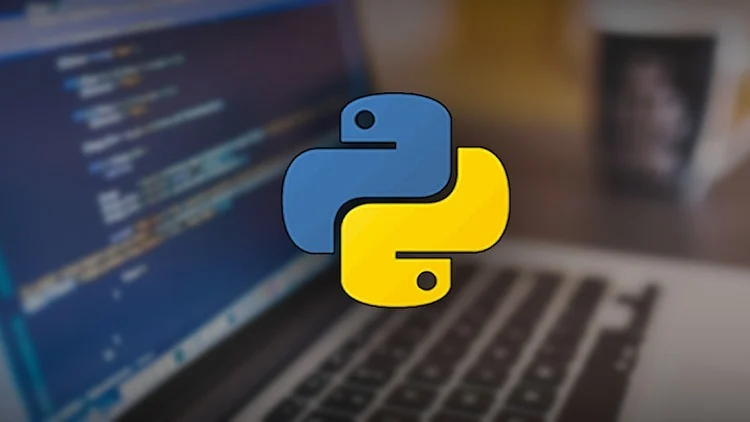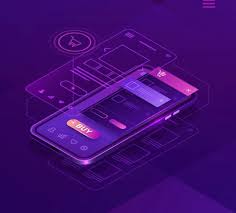This guide presents a curated collection of Android projects designed to help developers improve their Android development expertise. The projects are divided into two categories: beginner and advanced. Beginner projects focus on fundamental concepts, such as user input handling, basic UI design, and local storage. Advanced projects tackle more complex challenges, including real-time data synchronization, encryption, native libraries, and machine learning integration.
BMI Calculator
Project Details: A simple app that asks users for their height and weight, then shows their Body Mass Index. It’s a great way to get familiar with text inputs, buttons, and basic arithmetic in an Android environment.
How to Do:
- Create a new Android Studio project with an Empty Activity.
- In the layout, add two EditText fields (one for height, one for weight), a Button, and a TextView for the result.
- In the Activity’s code, read user input when the button is tapped, convert it to numbers, compute BMI = weight / (height × height), and display the value in the TextView.
- Add simple validation to ensure inputs aren’t empty or zero.
Features:
- Input fields for height (meters) and weight (kilograms)
- Calculate button
- Display of BMI with two decimal places
- Error message for invalid or missing input
Key Tools & Libraries:
- Android SDK (Java)
- Android Studio UI Designer
Project Source Code: GitHub
Open-Source Android Weather App
Project Details: An app that fetches weather data from the OpenWeatherMap API and displays current conditions plus a short forecast. It follows a Model–View–Presenter pattern to separate the data logic from the user interface.
How to Do:
- Sign up for a free OpenWeatherMap API key.
- Set up Retrofit to make HTTP requests and Gson to parse JSON.
- Build a Presenter class that requests data and passes it to the View (Activity/Fragment).
- Design layouts for current weather, including an icon, temperature, and description.
- Handle permissions and network errors with user feedback.
Features:
- Current weather display (icon, temperature, description)
- 5-day forecast in a RecyclerView
- Pull-to-refresh gesture
- Offline cache of last successful fetch
Key Tools & Libraries:
- Retrofit
- Gson
- MVP architecture
- AndroidX libraries
Project Source Code: GitHub
Tic Tac Toe Game
Project Details: A two-player version of the classic grid game. Users tap on grid cells to place X or O, and the app checks for three-in-a-row wins or a draw.
How to Do:
- Create a 3×3 GridLayout in XML.
- Assign click listeners to each cell view.
- Keep track of the current player and game state in a 2D array.
- After each move, check rows, columns, and diagonals for a win or full board for a draw.
- Show a dialog or Toast to announce results and offer a restart.
Features:
- Tap to place X or O
- Highlight winning line
- Draw detection
- Reset button
Key Tools & Libraries:
- Android SDK (Java)
- GridLayout
Project Source Code: GitHub
Expense Tracker App
Project Details: An application for logging expenses and income entries. It stores records locally and shows a summary of spending and earnings over time. This teaches you about persistent storage and data-driven UI.
How to Do:
- Define an SQLite database or Room entities for transactions (amount, category, date).
- Create DAO interfaces and a RoomDatabase.
- Build an Activity with input fields for new entries and a RecyclerView to list past records.
- Calculate totals and show a pie chart or bar chart of spending per category.
- Allow users to delete or edit transactions.
Features:
- Add, edit, delete entries
- List view of all transactions
- Summary of total income vs. expenses
- Chart of category-wise spending
Key Tools & Libraries:
- Room persistence library
- LiveData & ViewModel (MVVM)
- MPAndroidChart
Project Source Code: GitHub
Medicine Reminder
Project Details: An app that lets users schedule alarms for taking medication. It triggers notifications at set times and keeps a log of taken doses.
How to Do:
- Use Room or SharedPreferences to save medicine names and times.
- Schedule alarms with AlarmManager for each dose time.
- Implement a BroadcastReceiver to catch alarms and show a notification.
- Build a UI to add new medicines, set frequency, and view upcoming reminders.
- Mark doses as taken and record timestamps.
Features:
- Add multiple medicines with custom schedules
- Notifications at each dose time
- Log of when doses were taken
- Snooze or skip options
Key Tools & Libraries:
- AlarmManager & BroadcastReceiver
- Room or SharedPreferences
- Android Notification API
Project Source Code: GitHub
Social Media App (ReachMe)
Project Details: A small-scale social network where users can post short updates (“stories”), follow others, and interact through likes and comments. Data is stored in Firebase for real-time updates.
How to Do:
- Set up Firebase Authentication for user sign-up/sign-in.
- Use Firebase Realtime Database or Firestore to store posts, likes, and comments.
- Upload images to Firebase Storage and retrieve URLs.
- Display feeds in RecyclerViews, updating in real time with listeners.
- Allow users to follow or unfollow and filter the feed to show only followed users’ posts.
Features:
- User registration and login
- Create and view posts with images
- Like and comment on posts
- Follow/unfollow users
- Real-time feed updates
Key Tools & Libraries:
- Firebase Authentication
- Firebase Firestore (or Realtime Database)
- Firebase Storage
- Glide or Picasso for image loading
Project Source Code: GitHub
SociaLite (Official Sample)
Project Details: A sample project by Google demonstrating best practices for Android apps. It shows how to build a feed-based interface with paging, caching, and user profiles, using modern Jetpack libraries.
How to Do:
- Clone the repo and open it in Android Studio.
- Study how Paging 3 is used to load pages of posts.
- Examine Room setup for local caching and Retrofit for network access.
- Look at ViewModel and LiveData to update the UI.
- Run the app on an emulator to see feed loading, pull-to-refresh, and profile screens.
Features:
- Infinite scrolling feed
- Local cache of posts
- User profile and detail screens
- Pull-to-refresh
Key Tools & Libraries:
- Paging 3
- Room
- Retrofit & Moshi
- LiveData & ViewModel
Project Source Code: GitHub
Android-Beginner-Projects Collection
Project Details: A single repository that hosts several starter projects, such as a calculator, quotes app, Pokémon GO style map demo, and a basic e-commerce layout. It’s meant for experimenting with different parts of Android and Kotlin.
How to Do:
- Fork or clone the repo and open individual modules in Android Studio.
- Explore each folder (e.g., Calculator, Quotes, MapDemo) to see how layouts and code are organized.
- Run the modules one by one to observe behavior.
- Try modifying colors, adding features, or converting Java files to Kotlin.
Features:
- Simple calculator
- Quotes display with swipe gesture
- Map view demo
- E-commerce product list template
Key Tools & Libraries:
- Kotlin
- AndroidX components
- Google Maps SDK (for map demo)
- RecyclerView
Project Source Code: GitHub
Signal Android
Project Details: A private messenger that secures all messages and calls end-to-end. It supports one-to-one and group chats, disappearing messages, file sharing, and HD voice/video calls. Good for learning encryption, real-time data sync, and complex background services.
How to Do:
- Clone the repo and open in Android Studio.
- Fetch submodules and let Gradle sync.
- Configure your debug keystore (or use the provided one) and run on device/emulator.
- Register a test phone number with the Signal service to exchange encryption keys.
- Explore the code paths for messaging, media transfer, and call setup.
Features:
- End-to-end encrypted text, voice, and video
- Disappearing messages
- Group chats and file sharing
- Push notifications via Firebase
Key Tools & Libraries:
- Kotlin
- AndroidX
- libsignal-protocol
- WebRTC
- Room
Project Source Code: GitHub
VLC for Android
Project Details: Official Android port of the VLC media player. Plays virtually any audio or video format, supports network streams, and includes a media database for organizing content. Ideal for mastering native libraries and media frameworks.
How to Do:
- Clone the vlc-android repo and its submodules.
- Build LibVLC with the NDK (instructions in README).
- Open the Android project in Android Studio and let Gradle compile both native and Java/Kotlin code.
- Install on device and test local files plus network streams.
Features:
- Broad codec and container support
- Subtitle rendering and track switching
- Network streaming (HTTP, RTSP, etc.)
- Audio equalizer and playback speed control
- Android TV and Chromecast support
Key Tools & Libraries:
- Kotlin
- Android NDK
- LibVLC
- ExoPlayer integration
- AndroidX
Project Source Code: GitHub
OsmAnd
Project Details: Offline map and navigation app using OpenStreetMap data. Provides turn-by-turn guidance, custom map styles, GPX track recording, and POI search—all without an internet connection once maps are downloaded.
How to Do:
- Clone the OsmAnd repo and install required Android SDK/NDK versions.
- Use the provided repo manifest to sync modules (repo init/repo sync).
- Open the Gradle project in Android Studio, build, and install.
- Place OSM map files in the device’s storage for offline use.
Features:
- Offline routing for car, bike, pedestrian
- Voice guidance and speed limit warnings
- Custom rendering styles and day/night switching
- GPX track import/export
- POI editing plugin for direct OSM contributions
Key Tools & Libraries:
- Java
- C++
- Android SDK
- Mapsforge
- SQLite
- Gradle
Project Source Code: GitHub
StreetComplete
Project Details: An app for contributing to OpenStreetMap through “quests” that ask simple on-site questions (e.g., “Does this stop have a shelter?”). Answers are uploaded directly to OSM, making map editing approachable for newcomers.
How to Do:
- Clone the StreetComplete repo and open it in Android Studio.
- Obtain OSM OAuth credentials and configure them in the app.
- Build and install on device, then grant location and network permissions.
- Tap on nearby quests, answer questions, and watch edits appear in OSM.
Features:
- Quest-based editing with minimal OSM knowledge
- Offline map cache for survey mode
- Real-time upload of edits
- Gamified points and leaderboards
Key Tools & Libraries:
- Kotlin
- MapLibre SDK
- OSM API
- OAuth
- Android Architecture Components
- Coroutines
Project Source Code: GitHub
Proton Mail for Android
Project Details: Secure email client offering end-to-end encryption, zero-access architecture, and support for calendars and contacts. Built by Proton for privacy-focused communication.
How to Do:
- Clone the android-mail repo and import into Android Studio.
- Configure ProtonCore modules and API endpoints in Gradle.
- Generate or use provided signing keys and run on device.
- Log in with a Proton Mail account and explore encrypted messaging flows.
Features:
- End-to-end encrypted email and attachments
- Push notifications
- Multi-account support
- Built-in calendar and contact encryption
Key Tools & Libraries:
- Kotlin
- ProtonCore
- Retrofit
- Room
- Dagger
Project Source Code: GitHub
Thunderbird for Android
Project Details: Native email client derived from K-9 Mail. Offers a unified inbox, conversation view, folder management, and PGP integration via OpenKeychain.
How to Do:
- Clone the thunderbird-android repo and open in Android Studio.
- Let Gradle download dependencies and sync.
- Run on emulator or device, then add an IMAP/POP3 account.
- Install OpenKeychain to enable PGP encryption.
Features:
- Unified inbox and threaded conversations
- IMAP/POP3 support with IDLE push
- PGP encryption and signatures
- Folder and label management
Key Tools & Libraries:
- Java
- Android SDK
- Apache Commons
- OpenKeychain integration
Project Source Code: GitHub
DuckDuckGo Android
Project Details: Privacy-focused browser and search app. Blocks trackers, forces HTTPS, and clears all tabs and data with a single tap (“fire” button).
How to Do:
- Clone the duckduckgo/Android repo and run install_tools.sh.
- Open in Android Studio, let Gradle sync, and build.
- Install on a device running Android 5.0+ and explore privacy features.
Features:
- Tracker blocking
- HTTPS Everywhere
- Private search with autocomplete
- Fire button to erase all browsing data
- Customizable app tabs
Key Tools & Libraries:
- Kotlin
- AndroidX
- WebView
- Moshi
- Retrofit
- Espresso tests
Project Source Code: GitHub
Android TensorFlow Lite Machine Learning Example
Project Details: Demo app for on-device ML tasks: image classification, object detection, and audio recognition using TensorFlow Lite. Shows how to integrate TFLite models and run real-time inference.
How to Do:
- Clone the repo and open the sample module in Android Studio.
- Place TFLite model files in the assets folder (or let Gradle fetch them).
- Grant camera or microphone permissions.
- Build and run on a device to see live inference results.
Features:
- Image classification with pre-trained models
- Real-time object detection
- Audio classification demo
- Model quantization examples and performance metrics
Key Tools & Libraries:
- Java/Kotlin
- TensorFlow Lite
- TensorFlow Lite Task Library
- CameraX
Project Source Code: GitHub


